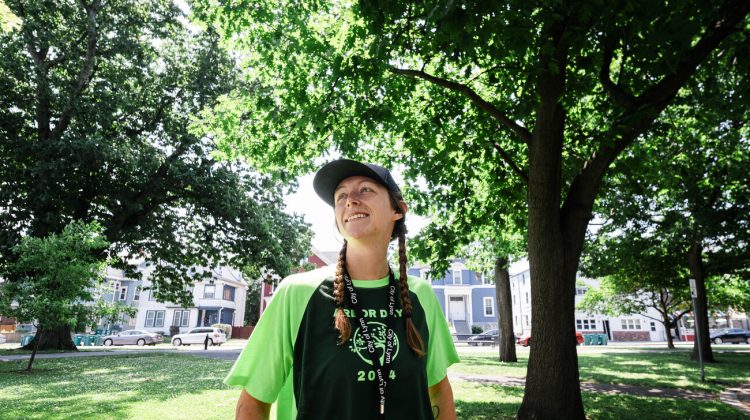LYNN — The city has received a $123,981 grant from Gov. Maura Healey’s administration to plant 110 new public trees and prepare 80 tree pits as part of the Greening the Gateway Cities Implementation Grant Program.
The program is designed to enhance public health and reduce household heating and cooling energy use by increasing tree-canopy cover in urban residential areas, according to a press release.
Erica Holm, the city’s first urban forestry fellow, said the Planning Department and the Department of Public Works will be coordinating “where to plant those trees in terms of environmental justice, in terms of where people want trees and where trees will be able to survive, where we’ll be able to plant shade trees.”
Holm is a certified arborist and was hired in recent months to oversee the management of the city’s trees.
She said the city has not yet identified specific areas where the trees will be planted, but it is developing an urban-forest plan, which involves tree inventory and assessment, tree planting, tree pruning, soil management, pest and disease monitoring and treatment, permitting, removal of dead or dying trees, and community engagement.
As the city moves forward with an urban-forest management plan, it is asking for residents’ feedback on where it should plant more trees.
A new page has been published on the city’s website that allows residents to drop location pins where they would like to see more public trees, which can be accessed at https://lynnincommon.com/urban-forestry. Holm said in the future, a feature will allow residents to request trees to be planted on private property, but it will not be part of the Greening the Gateway Cities Program.
Holm said the planting will be done on a tree-by-tree basis, based on sun and water conditions and the risk of trees being hit by vehicles. She said other factors will include the density of the area and whether it has piping and wiring underground that would prevent a tree from being planted.
She said having trees that create shade in public areas provide what is called “ecosystem services,” which help bolster public health and, in turn, decrease public violence.
“Trees are filtering air, they’re filtering water, they’re producing oxygen, and they’re storing carbon,” Holm said. “They’re related to just better mental and physical health among the population in your neighborhood, and they are just beautiful.”
She added if a patch of land is left alone long enough, it will become a forest on its own, so the initiative will also help reconnect people with nature.
“The urban forest is for everyone, and it has a lot of ecosystem-service benefits that even if people don’t really notice them, they’re still important to those individuals,” she said.
“We appreciate receiving this state funding, which will allow us to continue our efforts to improve the tree canopy in the city,” Mayor Jared Nicholson said. “We understand that trees play an important role in our community and we are taking steps to see that our residents benefit from their presence.”

